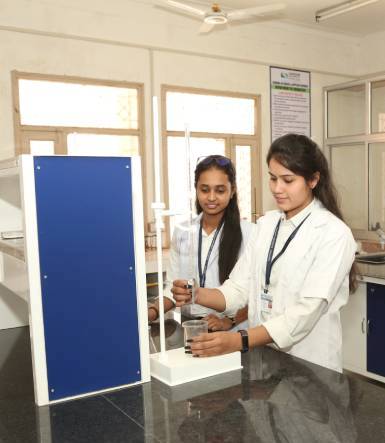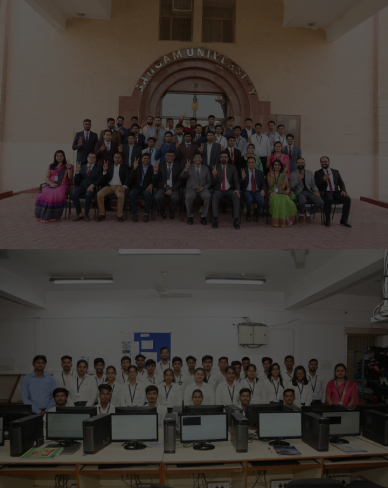Masters of Science
Academics often refer to chemistry as the central science; in this stream, all the natural sciences like geology, biology, and physics come together. It is believed to be one of the oldest streams of science that people have studied for hundreds of years.
The Master of Science in Chemistry postgraduate degree program is designed for students who want to learn about a specific set of advanced topics. This, combined with cutting-edge research, makes them pursue further studies or careers in their field of choice.
MSc degrees are recognized worldwide and are highly valued in many industries, including healthcare, technology, research, and education. Graduates with an MSc degree often pursue careers in fields such as research and development, data analysis, engineering, teaching, and management. Some graduates may also choose to continue their education by pursuing a higher degree such as a PhD or other doctoral-level degree.
In general, an MSc degree is seen as a more specialized and advanced degree than a Bachelor's degree, and can help students develop a deeper understanding of their field of study and prepare them for more advanced or specialized careers.

Masters of Science
Academics often refer to chemistry as the central science; in this stream, all the natural sciences like geology, biology, and physics come together. It is believed to be one of the oldest streams of science that people have studied for hundreds of years.
The Master of Science in Chemistry postgraduate degree program is designed for students who want to learn about a specific set of advanced topics. This, combined with cutting-edge research, makes them pursue further studies or careers in their field of choice.
MSc degrees are recognized worldwide and are highly valued in many industries, including healthcare, technology, research, and education. Graduates with an MSc degree often pursue careers in fields such as research and development, data analysis, engineering, teaching, and management. Some graduates may also choose to continue their education by pursuing a higher degree such as a PhD or other doctoral-level degree.
In general, an MSc degree is seen as a more specialized and advanced degree than a Bachelor's degree, and can help students develop a deeper understanding of their field of study and prepare them for more advanced or specialized careers.


USP's
- The curriculum is designed to cover the govt. job prospects and industrial aspects.
- Highly qualified and experienced faculty
- Expert lectures by senior professors and field experts.
- Well-equipped Chemistry, Physics and Biology Labs.
- Updated Communicative English Language Lab.
- 45-day industry internship program for M.Sc. Chemistry, 6-month internship in M.Sc. Geo informatics.
- 100% placement assistance
- Credit based value addition courses in each program to prepare students for competitive exams.
- Exposure to research activities through conferences, seminars and workshops.
- Mentoring of students on both academic and non-academic matters.

Duration & Eligibility
B.Sc. Degree in relevant subject with a minimum of 45% Aggregate Marks.

Seminars & Workshops
Career Opportunities
You will get hands-on practical and clinical learning experiences, from the lab to the field.
Gain project management, critical thinking, and research skills alongside practical knowledge of your chosen major in Science.
A BSc sets you up to pursue a wide range of careers all over the world — from marine biologist to aerospace engineer, and much more. It can open doors to many other careers, including business, politics, medicine, finance, and engineering. With a BSc, anything is possible.
Why Study at SU?
At Sangam University, our modern facilities draw in a worldwide community of people who live and study on campus or in our welcoming communities. Our Master of Science Centre provides a great resource for students, providing meaningful employment as academic tutors and giving students the chance to hone their skills in any discipline.
Those who begin in the three-year program may change to a four-year program at a later date if they meet program requirements for average and grades. Those planning to take a calculus course must write the Calculus Readiness Test.
FAQs
There are five streams available in Sangam University.
- M.Sc. in Chemistry
- M.Sc. in Mathematics
- M.Sc. in Physics
- M.Sc. in Botany
- M.Sc. in Zoology


















